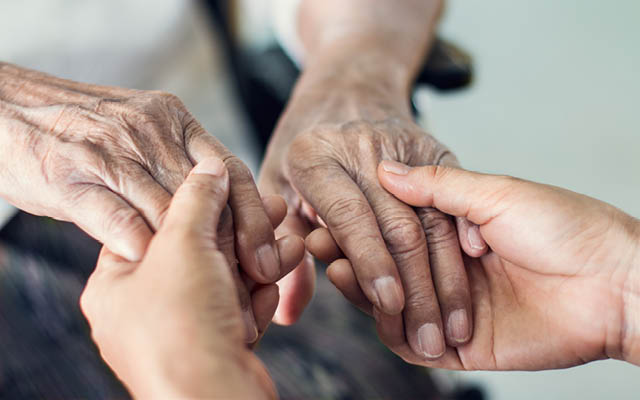Aging can trigger all sorts of fears — disability, uselessness, depression, among others — but we tend not to imagine ourselves struggling to get enough to eat. That’s the grim reality, however, for a growing number of elderly around the country, and the federal government seems disinclined to address the situation.
As Laura Ungar and Trudy Lieberman report in Kaiser Health News, some 5.5 million seniors routinely lack access to enough food to sustain their health. It’s a number that has more than doubled since 2001 and is likely to climb even higher as the massive boomer generation continues to roll toward retirement age.
“While the plight of hungry children elicits support and can be tackled in schools,” they write, “the plight of hungry older Americans is shrouded by isolation and a generation’s pride.”
A stubborn belief in self-reliance may partly explain why fewer than half of seniors who are eligible for SNAP food assistance apply for benefits, but those who do seek help are increasingly encountering a tattered nutritional safety net. Federal funding for home-delivered and group meals has dropped by 8 percent (adjusted for inflation) since 2001 while the elderly population has grown by more than 40 percent. A government review of 2013 data reported that federal-funded meal programs were serving only 17 percent of eligible seniors then, and it’s unlikely the situation has improved in the years since.
Charitable organizations, meanwhile, have struggled to fill the gap. Meals on Wheels, which serves some 5,000 communities nationwide and gets about a third of its funding through the U.S. Older Americans Act, can no longer handle the demand in many cities. Memphis seniors, for instance, face more than a yearlong wait before they can expect to receive their first meal.
“There are tens of thousands of seniors who are waiting,” Erika Kelly, chief membership and advocacy officer for Meals on Wheels America, told KHN. “While they’re waiting, their health deteriorates and, in some cases, we know seniors have died.”
Eugene Milligan escaped that fate — but just barely. As Unger and Lieberman report, the 75-year-old Army vet, who is blind and confined to a wheelchair, had been receiving meals from the Memphis-based Metropolitan Inter-Faith Association for nearly a decade before he burned himself in his kitchen and spent 65 days in the hospital. Because the meals program lost contact with him during that time, he was forced to re-apply for the service when he returned home. More than a thousand people were ahead of him on the waiting list.
Alerted to Milligan’s case by KHN reporters, program staff were able to accelerate his application process while his son and members of a nearby church struggled to stock his pantry. “Many times, I’ve felt like I was starving,” he said.
We may soon find out whether lawmakers in Washington are listening to people like Milligan. With the Older Americans Act set to expire September 30, the U.S. House of Representatives in June approved a 10 percent increase (about $93 million) to its nutrition programs, raising funding for the next fiscal year to $1 billion — less, in inflation-adjusted dollars, than what the government spent in 2009. The measure reportedly faces long odds in the Senate.




This Post Has 0 Comments